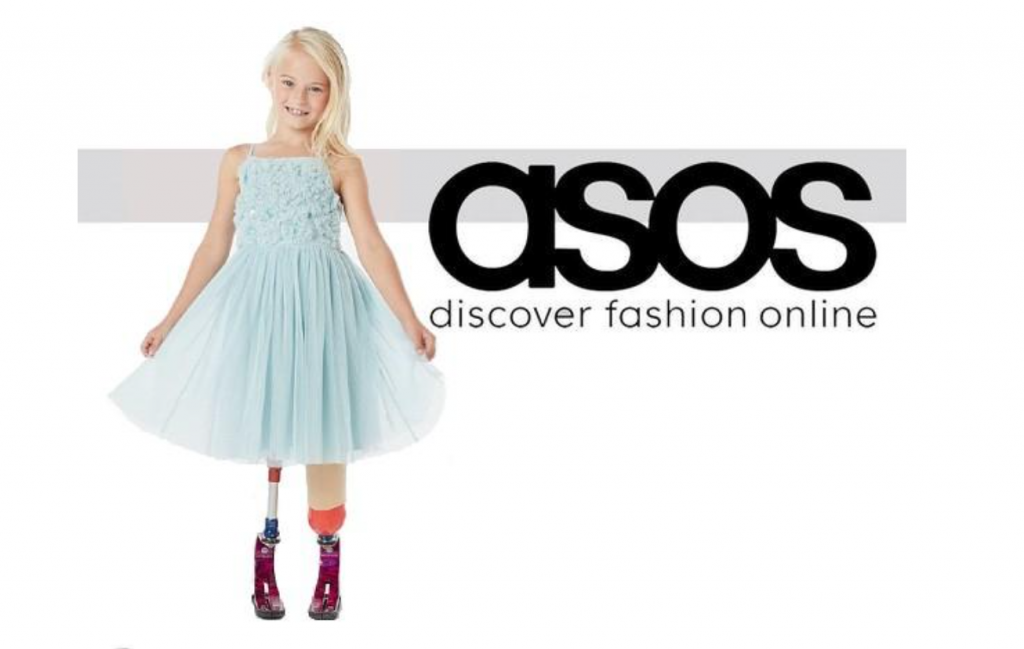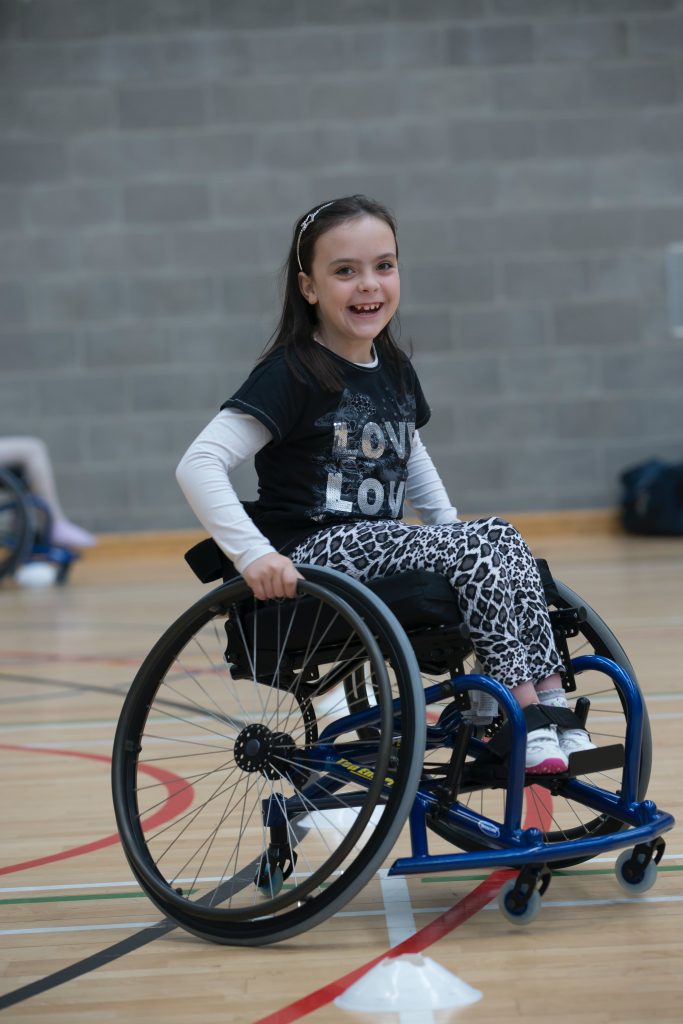Young designers re-imagined advertisements for famous fashion houses, swapping existing models for models with prosthetics. They replaced photographs of people without disabilities with those with disabilities in existing ads and sent them to international sporting apparel companies. Even the biggest tech companies in the world were approached with new takes with inclusion in mind.
The media project is the brainchild of Stephen Fowler, a Grade 9 teacher at Rick Hansen School of Science and Business in Abbotsford, BC. Every year, Stephen sets two weeks aside to teach his students about their school’s namesake, using his own activities along with the Rick Hansen Foundation School Program (RHFSP) resources. Stephen’s media project is the unit’s cherry-on-top after kids learn about Rick’s journey, his message of hope, and the importance of diversity and inclusion to create a barrier-free world.
“Kids who are 14 or 15 years old might know Rick is an athlete with a disability or that he did the Man In Motion World Tour, but they don’t know much about him other than that,” Stephen said. “So, I am hoping to improve their knowledge and make them aware that they’re so lucky to go to a school that’s named after a real Canadian hero.”

Image by Harleen Kaur – What is Perfect
Using RHFSP resources as the nucleus of his bootcamp, Stephen exercises the same theme behind the program’s aim of encouraging youth to act on issues that matter so they become leaders in creating an accessible and inclusive world. Inspired by a short film that reflects the acceptance of people with disabilities, Stephen has his students design ads in a similar vein for his unit’s media project.
“I don’t really care, to be honest, about how good it looks in the end. It takes about an hour or two for the students to do it,” he said. “I just really want them to think about it for two hours. I want them to think about why isn’t including people with disabilities normal? Why isn’t this what advertisers do? Why is this the way the world works? They’re discussing their ideas with other kids, so they’re thinking about it and talking about it. That’s all I really want.”
Inspiring Future Difference Makers
Meira Kallar is one of Stephen’s students who participated in the media project. Meira invested a bit more time than two hours for her advertisement for a Canadian mattress company because she wanted to represent D/deaf and hard-of-hearing people. Meira spent a day taking online lessons in American Sign Language (ASL) and practised what she’d learned for another two hours before adding ASL translation to the existing advertisement.
“I fell in love with ASL,” said Meira. “I saw such beauty in the language and felt that more people needed to see it in their everyday lives. I also wanted to show that those with hearing impairments live their lives just as anyone else does, and deserve to have their community represented more prominently in the media.”
It was a valuable lesson for Meira, who had her mind opened to the possibilities for people with disabilities. She said she’ll never forget what she learned in Stephen’s class.
“Through the mock advertisement that I created, I hope I illustrated the importance of inclusivity in the media,” Meira said. “Although today this advertisement may only exist for a small school project, I hope that one day we’ll be able to turn on our TVs and see a person with a disability in the spotlight.”
Life-Long Learning
Stephen shows his students a film clip of the beginning of Rick Hansen’s historic Man In Motion World Tour. There’s a lesson in those minutes; as the tour left Vancouver, the motorhome clipped the tunnel roof causing equipment stored on top of the vehicle to scatter. Yet, the show went on. Stephen applied this lesson to his own teachings as he had the students submit their mock advertisements to the related companies. The hitch in the plan was that many corporations only accept template form letters on their websites with no way to add attachments. Many of Stephen’s students didn’t receive responses.
“Rick said that even the best-laid plans always have a problem. So you don’t worry about making the mistake, just keep moving forward,” Stephen recalled. “And I do the same thing with teaching. If I was waiting for everything to be perfect, I’d never do it. You learn as you go.”
For students such as Meira, Stephen’s class helped her realize that she can play a part in helping build a world where everyone can go everywhere.
“I’ve come to discover that change is in my hands,” Meira said. “I’d like to continue to work towards creating a more inclusive world for those with disabilities. People with disabilities are the same as anyone else and deserve to be treated as such.”
Rebecca Blissett
Rebecca Blissett is a writer for the Rick Hansen Foundation, a Canadian organization dedicated to improving the lives of people with disabilities by creating an accessible and inclusive world. Rebecca has been a storyteller through use of the written word and photographs her entire adult life, with a passion for telling untold stories about regular people doing extraordinary things. Rebecca received her MFA in Creative Non-Fiction from King’s University College in 2018.
The Rick Hansen Foundation School Program offers no-charge lessons, activities and resources about the importance of accessibility and inclusion for students in kindergarten to grade 12 in both French and English. To learn more, visit https://www.rickhansen.com/schools-communities.
This article is featured in Canadian Teacher Magazine’s Winter 2022 issue.

